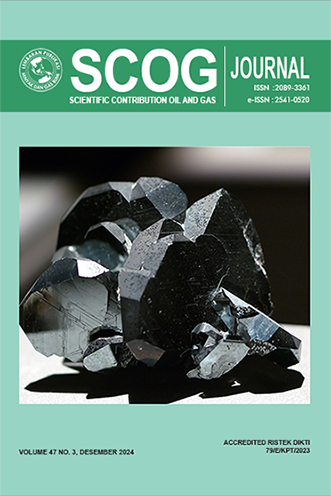Risk-Based Inspection Analysis of Api 581 Pressure Safety Valve and Stripper Acid Gas Removal Unit at PT. XY
Abstract
The process involving the stripper equipment in the Amine Gas Recovery Unit (AGRU), which separates rich amine, is a crucial part of the natural gas purification system. The use of a pressure safety valve is essential to maintaining operational safety. Long-term mechanical damage can lead to equipment failures such as leaks, fires, and poisoning, negatively impacting production efficiency and personnel safety. Risk-Based Inspection (RBI) is a method for inspecting, preventing, and controlling incident risks through mathematical inspections related to Probability of Failure (POF) Analysis, Consequence of Failure (COF) Analysis, and Risk Evaluation, with the output being an inspection schedule. The study results include the probability of overpressure under fire scenarios (2,82504 x 10-08), overfilling (7,06261 x 10-07), failure to open (1,49 x 10-05), and leak (3,64 x 10-02), with the consequence category averaging E, indicating that the Matrik Risiko from these scenarios is high risk. The inspection schedule is set every four years because the remaining life is half the project duration, warranting inspections at a maximum interval of 10 years. This four-year interval is based on the regulations from the Ministry of Energy and Mineral Resources No. 38 of 2017. Operational conditions, such as frequent foaming in the AGRU influence it.
Downloads
Published
Issue
Section
License

This work is licensed under a Creative Commons Attribution-NonCommercial-NoDerivatives 4.0 International License.


